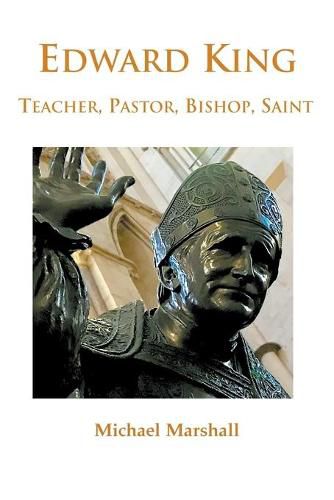Readings Newsletter
Become a Readings Member to make your shopping experience even easier.
Sign in or sign up for free!
You’re not far away from qualifying for FREE standard shipping within Australia
You’ve qualified for FREE standard shipping within Australia
The cart is loading…






This title is printed to order. This book may have been self-published. If so, we cannot guarantee the quality of the content. In the main most books will have gone through the editing process however some may not. We therefore suggest that you be aware of this before ordering this book. If in doubt check either the author or publisher’s details as we are unable to accept any returns unless they are faulty. Please contact us if you have any questions.
Prologue to the paperback edition introduces Edward King’s life and work in the context of the mission and vision for Anglicanism of John Henry Hobart, Bishop of New York and a major force for change and reform in the Episcopal Church of America, and the profound influence that Hobart exercised on the development of the19th century Church of England and the Oxford Movement.
EDWARD KING, as teacher, pastor, bishop and acclaimed saint, through his personal influence and holiness of life, radically challenged and changed the character and face of the Church of England and the wider Anglican Communion. Besides all other high qualifications he had a gift of empathy and sympathy so extraordinary that it was said to amount to ‘nothing less than a form of genius’. Ordained in 1854, King was chaplain and then Principal of the newly created Theological College at Cuddesdon. He subsequently spent twelve years in Oxford as Regius Professor of Pastoral Theology, and the remainder of his life, from 1885, in Lincoln as the much-loved Bishop. Edward King virtually invented pastoral theology as a serious subject in the Anglican Church. He was concerned to train a clergy who were pastorally, theologically and professionally competent in a way seldom seen before. As a bishop he exercised his ministry among the needy and the vulnerable, through an apostolic witness to the ordinary laity of the diocese. In his teaching, his personal and pastoral ministry and most conspicuously his lengthy episcopate, he embodied and communicated that gospel, life-affirming, tradition which in turn speaks so powerfully to the needs of the world in any age.
$9.00 standard shipping within Australia
FREE standard shipping within Australia for orders over $100.00
Express & International shipping calculated at checkout
This title is printed to order. This book may have been self-published. If so, we cannot guarantee the quality of the content. In the main most books will have gone through the editing process however some may not. We therefore suggest that you be aware of this before ordering this book. If in doubt check either the author or publisher’s details as we are unable to accept any returns unless they are faulty. Please contact us if you have any questions.
Prologue to the paperback edition introduces Edward King’s life and work in the context of the mission and vision for Anglicanism of John Henry Hobart, Bishop of New York and a major force for change and reform in the Episcopal Church of America, and the profound influence that Hobart exercised on the development of the19th century Church of England and the Oxford Movement.
EDWARD KING, as teacher, pastor, bishop and acclaimed saint, through his personal influence and holiness of life, radically challenged and changed the character and face of the Church of England and the wider Anglican Communion. Besides all other high qualifications he had a gift of empathy and sympathy so extraordinary that it was said to amount to ‘nothing less than a form of genius’. Ordained in 1854, King was chaplain and then Principal of the newly created Theological College at Cuddesdon. He subsequently spent twelve years in Oxford as Regius Professor of Pastoral Theology, and the remainder of his life, from 1885, in Lincoln as the much-loved Bishop. Edward King virtually invented pastoral theology as a serious subject in the Anglican Church. He was concerned to train a clergy who were pastorally, theologically and professionally competent in a way seldom seen before. As a bishop he exercised his ministry among the needy and the vulnerable, through an apostolic witness to the ordinary laity of the diocese. In his teaching, his personal and pastoral ministry and most conspicuously his lengthy episcopate, he embodied and communicated that gospel, life-affirming, tradition which in turn speaks so powerfully to the needs of the world in any age.